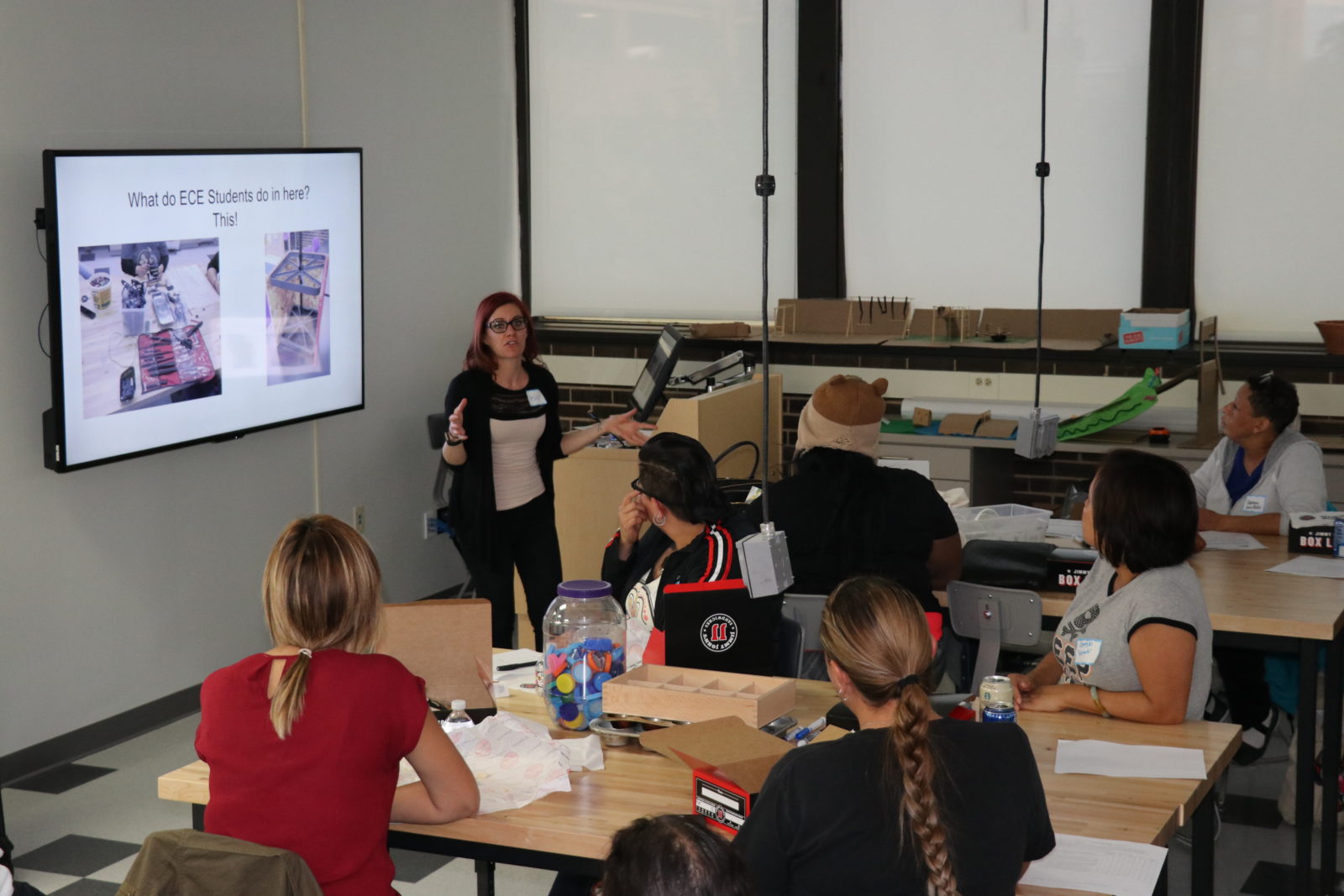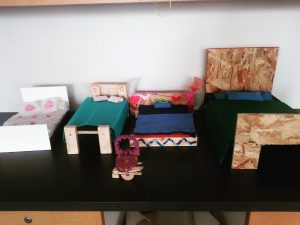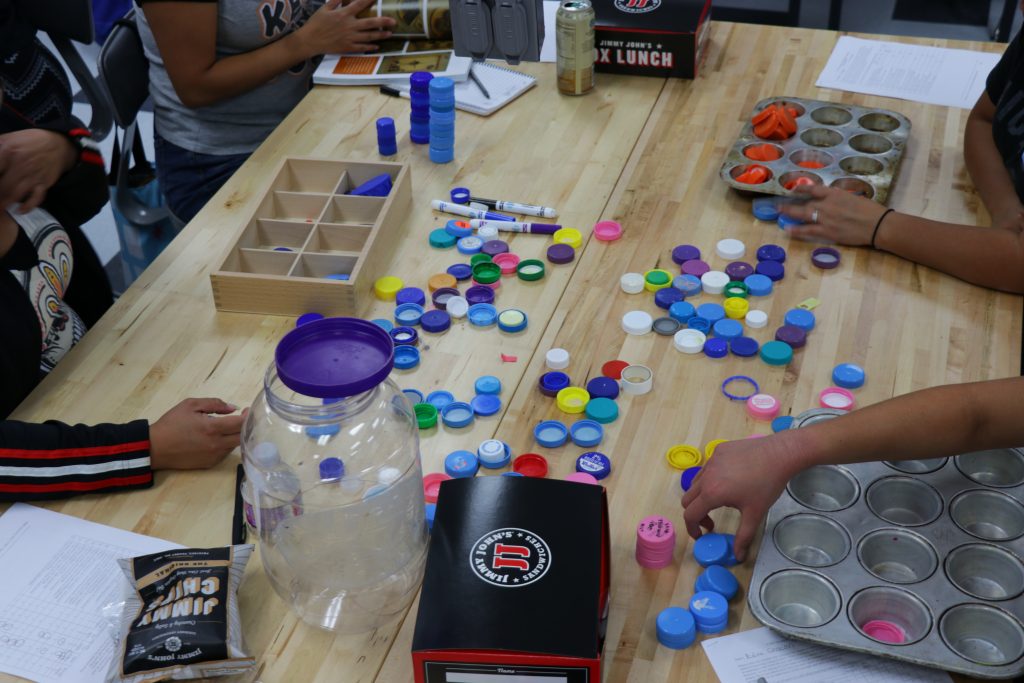Confessions of a Math-Phobic Educator
posted by Leslie Layman
It’s probably not a great start for my first Early Math Counts Blog entry to tell you all that used to dislike math. Like, really dislike it. I can still feel tears of frustration welling up while my face got hot when I couldn’t finish all the questions on a math test before the class period ended. I can see the the words in my math textbooks getting fuzzy in front of me as I tried to make sense of them, even though I was a gifted reader.
You can imagine that as a Child Development Professor at Truman College, I agreed to teach our Math and Science for Young Children course with a bit of reluctance. But this is a success story, this is a story about why that course is now one of my favorite courses to teach. Throughout the next four weeks, I’ll be telling you about what I believe is the power of teaching math to young children and the special charge we have as early childhood educators and care providers.

Leslie Layman instructing professional development students about the relationship between tinkering and math skills.
You have within your hands the power to prevent children in your care from experiencing those hot tears of frustration and self doubt. Like most stories in early childhood, this one starts with relationships and self reflection. You have to know your children well enough to identify their strengths and weakness and support them with rich opportunities that support both. You also have to respect young children enough to want to empower them with knowledge and experiences, even if you never had them yourself.
 Truman College students built different the sized beds from the fairy tale, “Goldilocks and the Three Bears.”
Truman College students built different the sized beds from the fairy tale, “Goldilocks and the Three Bears.”
For me, the ability to understand, teach, and even take joy in math started with a critical look at myself and what I was bringing to the table. I could not lay all of the blame on my math struggles on my teachers. When I looked closely I saw that I had expected math to come easily to me because reading had. When it did not, I became frustrated and at times gave up rather than embracing an interesting challenge. I also saw that part of the reason that I didn’t enjoy math as I did other subjects was because I was searching desperately for a why. When I looked again as an adult, the why was there all along. Math explains millions of whys in the world around us: why do certain instruments make certain noises, why do certain blocks make stronger structures than others? Math is a shared language to describe the wonders of why and how the world fits together the way that it does.
 Professional development students doing a loose parts activity that focuses on sets and sorting.
Professional development students doing a loose parts activity that focuses on sets and sorting.
Once I had taken this critical self-reflection journey I could see what my purpose was as a Child Development Professor teaching Math for Young Children to early childhood professionals. That’s when I began to love teaching math. Like, really love it. I realized as math-phobic educator, I had a special gift. A gift of compassion and understanding for people for whom math does not come easily and a gift of awe and respect for those for which it does. I could use that gift to find the magic and the why in math instruction and pass that on to others. So this is a success story, and a call to action for all my math-phobic educators out there. You have the power to interrupt the cycle of math phobia. You are specially equipped to support young children who doubt themselves and struggle. We know from research that one of the most important indicators of children’s success in math is the attitude of their teacher toward math (Ernest, 1989). Someone very important to me says if something scares you, run towards it. This is your charge.
References
Ernest, P. (1989). The knowledge, beliefs and attitudes of the mathematics teacher: A model. Journal of education for teaching, 15(1), 13-33
Totally math-phobic, this was really helpful.
I’m glad this helped. I hope you have more fun exploring math!
I’m a little bit math-phobic myself.
What do I need to do if a child just isn’t comprehending the lesson? I even used Pictographs of this student to keep focused!!!!! Could this student’s lack of comprehension stem from some other reason as to why he doesn’t “get it?” What if this child has hearing problems?
Hi Leslie! Great Blog!! Reading your blog and reflecting upon my own math horrors in high school, they are really similar. I can remember tons of days where the waterworks were going because I just couldn’t seem to fully understand the concepts.Despite, I received a 21 in Math, the first time I took it! Needless to say, I’m able to go back and reflect upon my own math skills and can teach it to children. Of course I would be smart and stick with early math… Not high school! Great Job though and thanks for sharing!!!
I was never good at math, therefore hated it. I’m trying to educate my 3 year olds in a fun and supportive way so they learn and love math. Thanks for the insight!
Math can seem intimidating, but then we realize that math is all around us and we use it everyday.
Stephanie F
I always felt that math was out of my league. But when introduced to your children in a way that makes sense to them makes me see it in a different way also.
Laurie
I had a very difficult time with math, until I figured out that the instructors were the problem. I researched Math Phobia and actually taught Math in college and actually wrote a text book in Math, which is used at various schools. Presention is everything, make the complex simple, not the simple complex!
I am glad I came across this blog today because that is how I described myself, a math phobic. Presentation may have been part of my problem. Now I hope to teach young children math in ways that are fun so they will get off to a better start than I did.